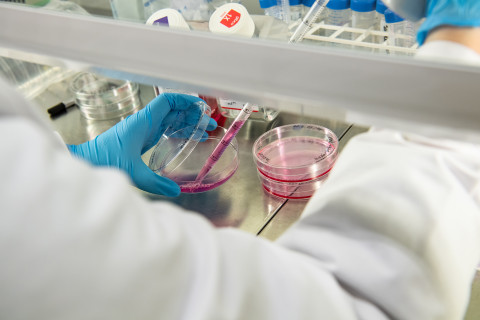The doctoral dissertation in the field of Molecular Medicine will be examined at the Faculty of Health Sciences at Kuopio Campus. The public examination will be streamed online.
What is the topic of your doctoral research? Why is it important to study the topic?
My dissertation aims to understand the mechanisms by which genetic variants in non-coding regulatory elements across different cell types confer risk for coronary artery disease (CAD). Genome-wide association studies (GWAS) have identified hundreds of genetic loci harbouring thousands of variants associated with CAD risk, yet the functional consequences and molecular mechanisms underlying many of these variants remain unknown. In this thesis, I investigate CAD-associated GWAS single nucleotide polymorphisms (SNPs) located within regulatory regions of hepatocytes, endothelial cells, and smooth muscle cells to explore the potential genetic mechanisms contributing to the disease. This work highlights the importance of integrating GWAS data with functional genomics tools to uncover cell type-specific molecular mechanisms driving CAD.
What are the key findings or observations of your doctoral research?
In Study I, liver-specific noncoding CAD-associated genetic variants and putative causal regulatory regions, such as enhancers, were identified. These variants affect liver function and contribute to the predisposition to cardiovascular disease.
In Study II, the effects of genetic variants near the CALCRL locus—associated with cardiovascular disease and encoding a mediator of endothelial fluid shear stress response—were examined using multiple approaches. The study demonstrated that an endothelial-specific heat shock factor-regulated enhancer mediates the expression of CALCRL.
In Study III, CAD-associated genetic variants influencing gene expression or splicing in aortic smooth muscle cells were investigated. Among others, MAP3K7CL was identified as an important gene affecting CAD susceptibility and blood pressure.
How can the results of your doctoral research be utilised in practice?
Characterizing the functional effects of disease-associated genetic variants and loci is a crucial step in defining the biological mechanisms underlying diseases. This knowledge could ultimately be used to identify individuals at high risk and to guide the development of novel treatments. Altogether, these studies provide valuable new insights into the genetic and functional mechanisms contributing to cardiovascular disease.
What are the key research methods and materials used in your doctoral research?
In this thesis, putative enhancer regions and their target genes were identified using genome-wide global run-on sequencing (GRO-seq), promoter capture Hi-C data, chromatin immunoprecipitation sequencing (ChIP-seq), and eQTL-based approaches. Colocalization analysis was performed to identify genetic variants influencing both gene expression and cardiovascular disease (CVD)-related phenotypes. Massively Parallel Reporter Assay (MPRA) was used to measure the effects of genetic variants on enhancer activity. Enhancer deletion was carried out using a CRISPR-Cas9-based technique, while enhancer activation was performed using the VPR system. Athero-relevant flow conditions in endothelial cells were modeled using the Ibidi Pump System. The activity and specificity of candidate enhancers were further evaluated through reporter assays in various mammalian cell lines, followed by RNA-seq to identify potential downstream targets and associated biological pathways. Based on the pathways identified by RNA-seq analysis, further validations such as cell proliferation, angiogenesis, and Griess assays were performed. Finally, zebrafish model was employed to validate and understand the genes’ association with CVD-related phenotypes.
The doctoral dissertation of Ilakya Selvarajan, MSc, entitled Cell type specific genetic regulatory mechanisms in human coronary artery disease will be examined at the Faculty of Health Sciences. The Opponent in the public examination will be Assistant Professor Helena Kilpinen of the University of Helsinki, and the Custos will be Professor Minna Kaikkonen-Määttä of the University of Eastern Finland.
For further information, please contact:
Ilakya Selvarajan, MSc, ilakya.selvarajan@uef.fi, https://uefconnect.uef.fi/en/person/ilakya.selvarajan/



